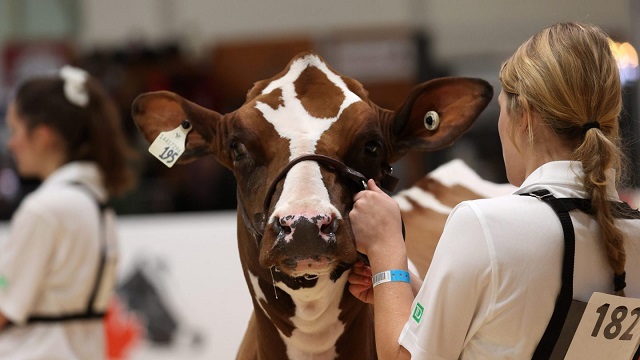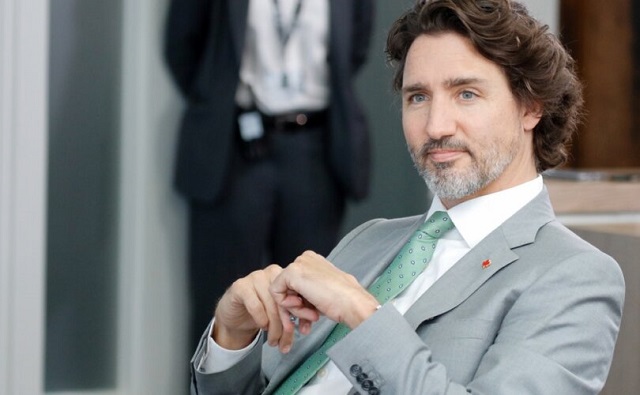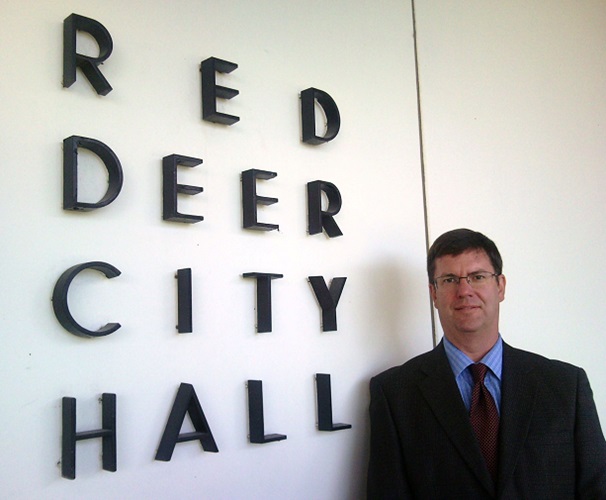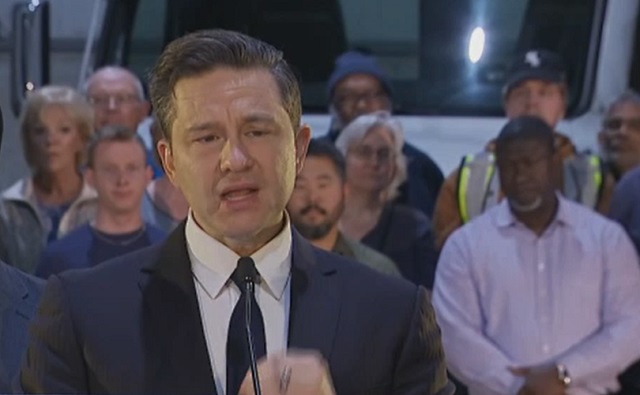Agriculture
City Council urged to get back to the table to vote on future of Westerner Park

Letter submitted by Lyn Radford (Chair of the 2019 Canada Winter Games)
Lack of Council Leadership or Election Posturing?
In this unprecedented time of the pandemic, of polarized political views I have tried to stay out of commenting on decisions our political leaders have to make. We all know there is not usually a clear-cut answer. But this delay situation by City Council regarding the Westerner clearly baffles me.
First, I want to send out a thank you to both the Westerner and City Administration for their hard work and excellent reports and options for this very unfortunate situation. Second, I want to thank the Westerner Board for not running from a situation but rather staying to try to sort out a mess. As a volunteer myself, I know this has not been an easy situation for you and your families. I also want to acknowledge Councillors Wyntjes and Dawe for wanting to move this forward, whatever their decision would have been.
The City’s Vision Statement and Strategic Goals clearly lays out a pathway to help guide Council to make a positive, community benefiting decisions. “Innovative Thinking, Inspired Results, Vibrant Community” are their key words.
Strategic Goal #4 “A chosen destination: We are a four-season destination where visitors and residents enjoy our parks, trails and distinctive amenities, all within our “city in a park”. Centrally located in the province, we attract events that generate investment and enhance our community identity.
My question is how by delaying a decision does City Council justify following their Vision Statement and Strategic Goals.
I add these queries and statements:
- You have had more than year to gather information, make enquiries, have closed council information sessions, spoke to community members, and should have delved into this. You received the report far in advance of the special session and should have come ready for a decision without delay. Why did this not happen?
- The City has been locked and instep with the Westerner in the last year. The Westerner has fulfilled all requests and have been measured through two (very expensive) audits by Deloitte.
- There is over $3.5 million generously donated by a private family, held in trust for the Westerner Foundation, that could be doubled with a potential matching grant that will be dispersed upon a sustainable decision for Westerner Park, if a deal has been reached by May 15th. And our community will most likely lose this because of this delay. Sad.
- If CIBC closes on the loan for default (community this is very, very real), there will be hundreds of thousands of dollars spent putting this into receivership, of which our community will have no gain or say. And further, we will not have an event center capable of hosting the economic driver our community so sorely needs right now, as we know what the vacant downtown and business parks are looking like today.
- How much staff time has been spent already? Spend more money delaying a decision, no matter what the cost?
- Twice, not just once, in your session, councillors questioned the capabilities of the Westerners CEO. Did you not have time in the closed sessions to request a character assessment? Do councillors feel this was the right, very public forum for this? Rather than being able to say you did your due diligence in a professional and respective manner?
- Through the whole poor decision making by the Westerner Board that brought this terrible situation forward, there were three members of today’s council that actively sat on the Westerner Board. Maybe some ownership needs to happen here and a review of the responsibility process for Councillors to be revisited, giving a level of responsibility to council. If you want to sit at the table, then accept all the responsibility as every other board member has had to do.
- Further, the initial loan that started this process way back in 2017 and subsequent refinancing all had to be signed through a tri-party agreement by the City of Red Deer, fully knowing that this result could happen. Why is there any hesitation here?
- The window of borrowing from the province is very small now, missing this will create more costs.
- The Westerner annually, has been contributing a $150 million/year economic impact to our community. They were one of the largest employer’s, well over 600 employees each year and then add all the employees of the supporting vendors, we can comfortably say that in a year well over a thousand of our community members that pay property taxes are impacted by the Westerner directly.
- The Westerner has been a volunteer ran organization for 130 years. These volunteers and eventually along with paid staff have contributed so much to our “vibrant community”, building an asset value of over $57 Million dollars. This is a big bump but not a mountain, lets deal with it.
- No matter who you are or what your interests are, the Westerner has been providing experiences for us for 130 years – concerts, sporting events, rodeo events, fairs, shopping opportunities, cultural experiences, first jobs, first dates, health fairs, Agri trade, a place to first learn to drive, the day you wed, celebrating the season, ringing the New Year……all for our community
In conclusion, what we need right now is Council members to host a special meeting immediately and make a decision one way or another. I sincerely hope the decision will be to support, empower, trust and not control or try to compete with the community run Westerner Board, volunteers, and staff to rebuild a “distinct community amenity”. It can become a strong thriving contributing member of our broken community once again. We are in need of some strong leadership.
Respectfully submitted,
Lyn Radford
Agriculture
Degrowth: How to Make the World Poorer, Polluted and Miserable

From StosselTV
Activists have a new goal: “DEgrowth.”
They say “growth is killing us.” They couldn’t be MORE wrong.
“Growth is not killing us. It’s saving us!” says author Johan Norberg. He explains why growth is essential to human progress, especially for poor people. “In poor countries, if you manage to grow by 4% annually over 20 years,” he points out, “that reduces poverty in that country on average by 80%.
But DEgrowth activists insist that growth means “climate chaos.” They say a smaller economy would be “sweeter.” They say “We must urgently dismantle capitalism!” It’s destructive nonsense. This video explains why.
————
To get our new weekly video from Stossel TV, sign up here: https://www.johnstossel.com/#subscribe
————
After 40+ years of reporting, I now understand the importance of limited government and personal freedom.
——————————————
Libertarian journalist John Stossel created Stossel TV to explain liberty and free markets to young people.
Prior to Stossel TV he hosted a show on Fox Business and co-anchored ABC’s primetime newsmagazine show, 20/20. Stossel’s economic programs have been adapted into teaching kits by a non-profit organization, “Stossel in the Classroom.” High school teachers in American public schools now use the videos to help educate their students on economics and economic freedom. They are seen by more than 12 million students every year.
Stossel has received 19 Emmy Awards and has been honored five times for excellence in consumer reporting by the National Press Club.
Other honors include the George Polk Award for Outstanding Local Reporting and the George Foster Peabody Award.
Agriculture
How oil and gas support food security in Canada and around the world

General view of the ‘TD Canadian 4-H Dairy Classic Showmanship’ within the 101st edition of Royal Agricultural Winter Fair at Exhibition Place in Toronto, Ontario, on November 6, 2023. The Royal is the largest combined indoor agriculture fair and international equestrian competition in the world. Getty Images photo
From the Canadian Energy Centre
‘Agriculture requires fuel, and it requires lubricants. It requires heat and electricity. Modern agriculture can’t be done without energy’
Agriculture and oil and gas are two of Canada’s biggest businesses – and they are closely linked, industry leaders say.
From nitrogen-based fertilizer to heating and equipment fuels, oil and gas are the backbone of Canada’s farms, providing food security for Canadians and exports to nearly 200 countries around the world.
“Canada is a country that is rich in natural resources, and we are among the best, I would even characterize as the best, in terms of the production of sustainable energy and food, not only for Canadians but for the rest of the world,” said Don Smith, chief operating officer of the United Farmers of Alberta Co-operative.
“The two are very closely linked together… Agriculture requires fuel, and it requires lubricants. It requires heat and electricity. Modern agriculture can’t be done without energy, and it is a significant portion of operating expenses on a farm.”
The need for stable food sources is critical to a global economy whose population is set to reach 9.7 billion people by 2050.
The main pillars of food security are availability and affordability, said Keith Currie, president of the Canadian Federation of Agriculture (CFA).
“In Canada, availability is not so much an issue. We are a very productive country when it comes to agriculture products and food products. But food affordability has become an issue for a number of people,” said Currie, who is also on the advisory council for the advocacy group Energy for a Secure Future.
The average price of food bought in stores increased by nearly 25 per cent over the last five years, according to Statistics Canada.
Restricting access to oil and gas, or policies like carbon taxes that increase the cost for farmers to use these fuels, risk increasing food costs even more for Canadians and making Canadian food exports less attractive to global customers, CFA says.
“Canada is an exporting nation when it comes to food. In order for us to be competitive we not only have to have the right trade deals in place, but we have to be competitive price wise too,” Currie said.

Under an incredible Saskatchewan sky, a farmer walks toward his air seeder to begin the process of planting this year’s crop. Getty Images photo
Canada is the fifth-largest exporter of agri-food and seafood in the world, exporting approximately $93 billion of products in 2022, according to Agriculture Canada.
Meanwhile, Canadians spent nearly $190 billion on food, beverage, tobacco and cannabis products in 2022, representing the third-largest household expenditure category after transportation and shelter.
Currie said there are opportunities for renewable energy to help supplement oil and gas in agriculture, particularly in biofuels.
“But we’re not at a point from a production standpoint or an overall infrastructure standpoint where it’s a go-to right away,” he said.
“We need the infrastructure and we need probably a lot of incentives before we can even think about moving away from the oil and gas sector as a supplier of energy right now.”
Worldwide demand for oil and gas in the agriculture sector continues to grow, according to CEC Research.
Driven by Africa and Latin America, global oil use in agriculture increased to 118 million tonnes of oil equivalent (Mtoe) in 2022, up from 110 million tonnes in 1990.
Demand for natural gas also increased — from 7.5 Mtoe in 1990 to 11 Mtoe in 2022.
Sylvain Charlebois, senior director, in the Agri-Food Analytics Lab at Dalhousie University, said food security depends on three pillars – access, safety, and affordability.
“Countries are food secure on different levels. Canada’s situation I think is envious to be honest. I think we’re doing very well compared to other countries, especially when it comes to safety and access,” said Charlebois.
“If you have a food insecure population, civil unrest is more likely, tensions, and political instability in different regions become more of a possibility.”
As a country, access to affordable energy is key as well, he said.
“The food industry highly depends on energy sources and of course food is energy. More and more we’re seeing a convergence of the two worlds – food and energy… It forces the food sector to play a much larger role in the energy agenda of a country like Canada.”
-

 Housing2 days ago
Housing2 days agoTrudeau admits immigration too much for Canada to ‘absorb’ but keeps target at record high
-

 Business2 days ago
Business2 days agoDecarbonization deal opens new chapter in Alberta-Japan relationship
-

 2024 City Councilor By-Election2 days ago
2024 City Councilor By-Election2 days agoGet to know your candidates for city council: Calvin Yzerman
-

 2024 City Councilor By-Election2 days ago
2024 City Councilor By-Election2 days agoGet to know your candidates for city council: Liam (The Level) Milaney
-

 Bruce Dowbiggin2 days ago
Bruce Dowbiggin2 days agoSorry, Justin. Social Media Won’t Give You A Mulroney Epitaph
-

 2024 City Councilor By-Election2 days ago
2024 City Councilor By-Election2 days agoGet to know your candidates for city council: Jaelene Tweedle
-

 2024 City Councilor By-Election2 days ago
2024 City Councilor By-Election2 days agoGet to know your candidates for city council: Ashley Macdonald
-

 Politics2 days ago
Politics2 days agoPoilievre chastises Trudeau for dealing with inflation like a ‘pyromaniac promising to fight a fire’





